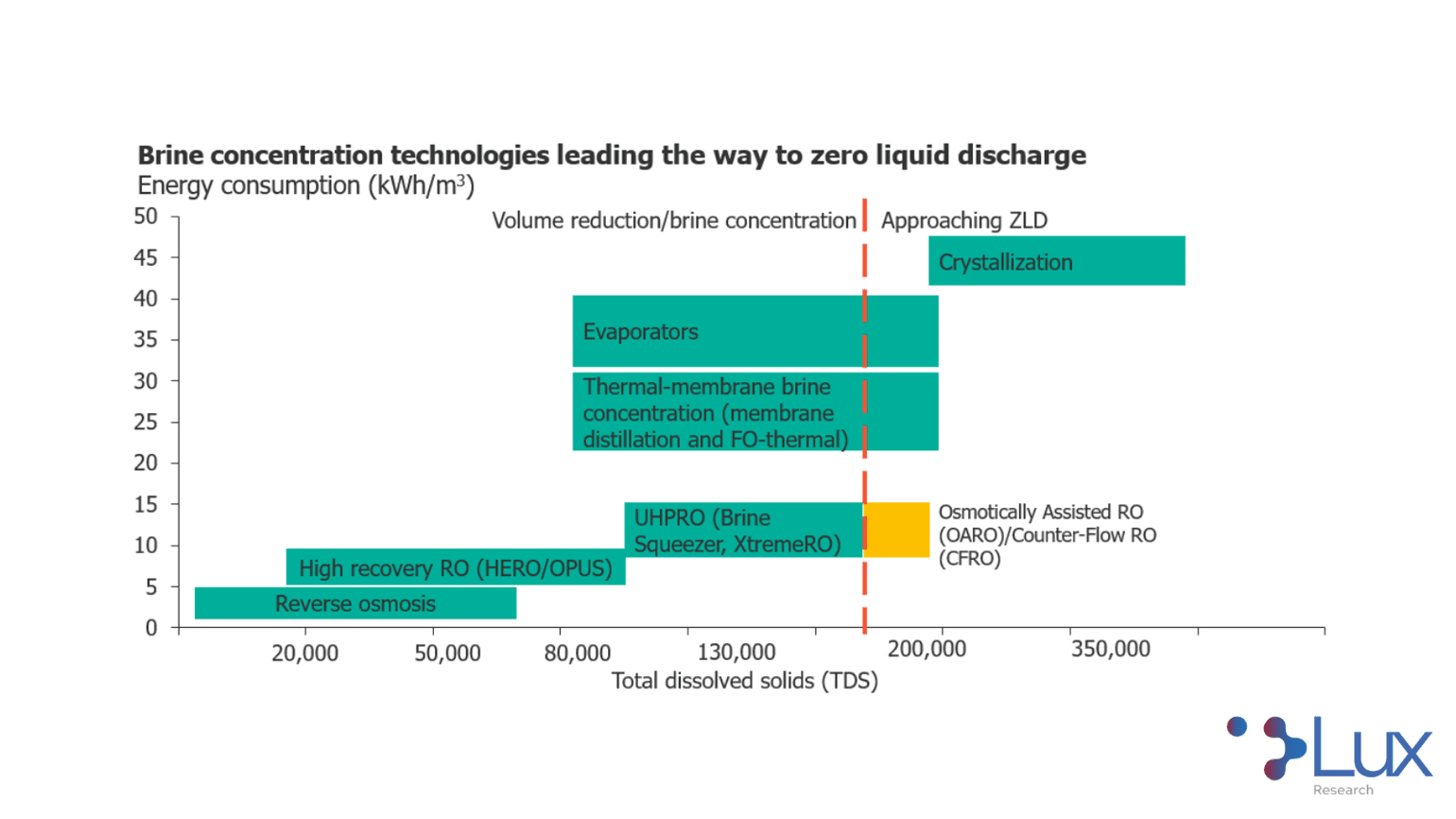As Water Prices Rise at an Average of 5% to 11% Around the World, New Solutions in Brine Management Emerge

Global water and resource scarcity must drive innovation to make water and brine circular, according to Lux Research
BOSTON, MA, MAY 26, 2021 – Global water scarcity is pushing industry to aggressively compete with agriculture and public supply for access to fresh water. With water prices increasing at an average rate of 5% to 11% around the world, industries need to focus on not only recycling and reusing water but also finding value in their waste, argues Lux Research, a leading provider of tech-enabled research and innovation advisory services.
Lux’s new report, “Desalting Waste Streams: The Future of Brine Concentration Technologies,” covers a crop of new solutions for brine concentration, a key aspect of making zero liquid discharge (ZLD) cheaper and an avenue to start recovering valuable resources from waste streams (brines). Lux identifies three key opportunities:
- The Brine Problem: Low recovery rates of water treatment technologies and reliance on inefficient thermal technologies have led to a “brine problem.” Existing brine management solutions remain prohibitively uneconomical.
- The Technology Solution: Innovations in brine management are heavily reliant on the technologies’ ability to deal with high concentrations of solids (salt). We show how membrane technologies are getting significantly better over time and outcompeting legacy thermal solutions.
- The Need for Collaboration: Making money from a waste product like brine is challenging. We look at projects in Europe (ZERO BRINE) and lithium production from oilfield brines (North America) that aspire to make money from brines.
“Although many regard brine management as a technology challenge, it is also an economic challenge for most countries and one worth tackling head-on,” asserts Abhirabh Basu, Analyst at Lux Research and lead author of the report. “While technologies have reached the point of making brine disposal more economical, the question companies need to be asking is, ‘What if brine was not considered waste but rather a resource?’”
Industry generates tons of waste brine each year, and the current linear economy approach perpetuates the generation of brine. However, brine recycling provides opportunities to monetize the brine waste stream. For example, the ZERO BRINE project proposes a circular economy approach to reduce the negative impacts of brine from process industries in order to create economic value from the reuse of salts/minerals and potentially metals, including sodium chloride, magnesium, calcium, sulfates, and sodium bicarbonate, as well as heat and fresh water.
The competition for water supply among industry, the public sector, and agriculture is pushing companies to adopt just such a circular economy approach. Closing the water loop will be crucial for companies to avoid downtime and secure water for operations without paying a premium. Considering this, along with tightening discharge regulations across heavy industries and key manufacturing markets, companies should expect to see growth in brine concentration technologies and ZLD opportunities. Download the executive summary of the report to learn more.














